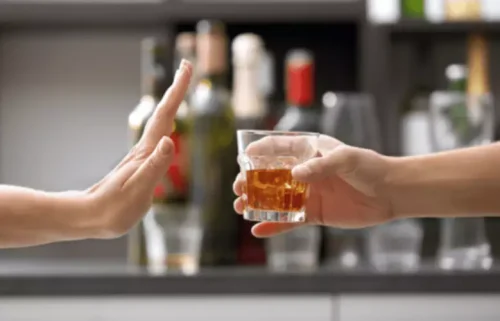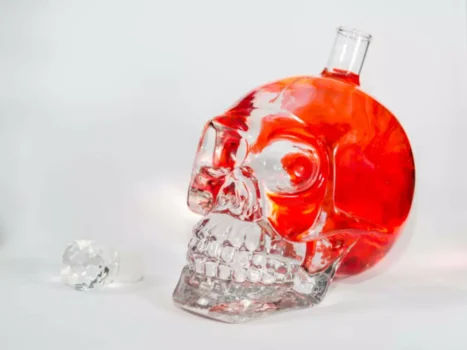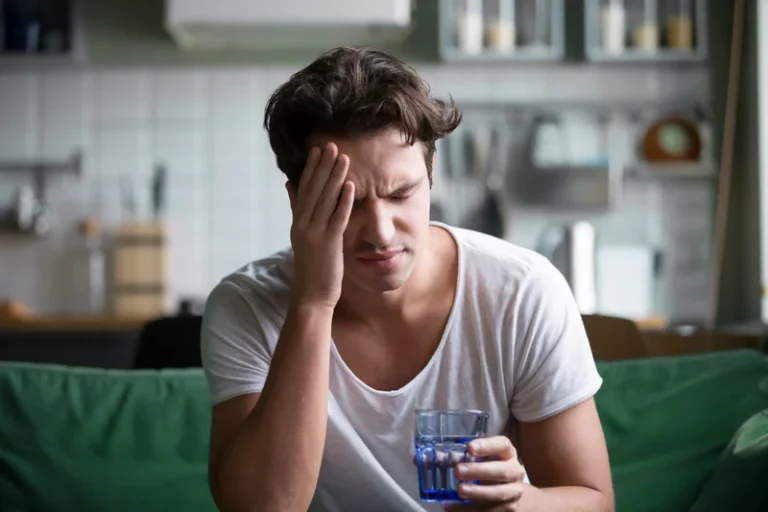
Research suggests there may be a bidirectional connection between anxiety disorders and AUD. Long-term alcohol use also often leads to tolerance, when a person needs to drink more to get the desired effect. For example, a person might have started feeling more relaxed after just one glass of wine. As time goes on, however, they might find they need two, three, or more glasses of alcohol to get the same feeling. If they continue to use alcohol to help them feel more relaxed or at ease, they might eventually feel the need to avoid any social situations where they would be unable to drink.
How can you prevent panic attacks after drinking?
The NHS website, Every Mind Matters, has advice on how to access support and treatment for anxiety in England. This includes options for NHS support, links to charities, helplines and communities, and tips on self-care. It slows down processes in your brain and central nervous system, and can initially make you feel less inhibited.10,11 In the short-term, you might feel more relaxed — but these effects wear off quickly.

The Self-Medication Model
In some cases, agoraphobia develops in the absence of panic attacks, and therefore is a separate disorder in DSM-5. Addiction Resource is an educational platform for sharing and disseminating https://ecosoberhouse.com/ information about addiction and substance abuse recovery centers. Addiction Resource is not a healthcare provider, nor does it claim to offer sound medical advice to anyone.
Treating Addiction To Alcoholism And Anxiety
Similar to the other modalities described here, administration of these psychosocial treatment strategies for alcohol problems can be less straightforward with individuals who have comorbid anxiety and AUDs. Clients with social anxiety disorder, for example, may have difficulties with several elements of standard psychosocial approaches for alcoholism. Many treatment programs, as well as AA, heavily rely on the mutual help in group settings. Individuals with social anxiety, however, may be reluctant to attend group therapy or AA meetings or alcohol and panic attacks may avoid meaningful participation should they make the effort to attend. Other activities that are integral to participation in AA, such as sharing one’s story (i.e., public speaking), obtaining a sponsor, and becoming a sponsor (i.e., initiating social contact) also can be impaired among socially anxious alcoholics. Consistent with these hypotheses, research has shown that at least among women with social phobia, participation in AA may be less appealing and less effective than other approaches (Thevos et al. 2000; Tonigan et al. 2010).

Perhaps most importantly, once the complete assessment data have been gathered through all the available strategies, the full spectrum of information should be integrated and considered as a whole to yield the most accurate diagnosis. To select an appropriate treatment approach using these differential diagnosis methods it also is crucial to consider that substance-induced mood and anxiety disorders can negatively impact treatment and increase overall clinical severity (Grant et al. 2004). Consequently, when it has been determined that an anxiety disorder likely is substance induced it may not be the best approach to simply treat the AUD alone and wait for the subsequent remission of the anxiety disorder. The psychosocial impact of alcoholism also has been implicated in the genesis of anxiety. Social consequences of habitual excessive drinking are common and include pervasive and cumulative problems in vital areas of life, such as employment, interpersonal relationships, and finances (Klingemann 2001; Klingemann and Gmel 2001).
- The following sections will review fundamental concepts related to how these disorders co-occur and describe approaches to diagnosing and treating comorbid anxiety and AUDs.
- With Talkiatry, you can see a psychiatrist from the comfort of your home and you can schedule your first appointment in a matter of days.
- Finally, the assumption that common areas of construct space exist across the disciplines of psychiatry, psychology, and neuroscience is open to debate.
- Antidepressants may be taken every day to help treat anxiety, while benzodiazepines are generally used for temporary relief from uncontrollable feelings of anxiety.
- Remember, it’s not just alcohol which can causes symptoms that lead to panic attacks.

When dealing with stressful days or nervous situations, you may be tempted to have a glass of wine or a beer to calm your nerves. However, drinking alcohol, especially heavily and over a long period of time, can actually increase your anxiety. As alcohol is a sedative and depressant, it can relieve feelings of fear and anxiety in the moment. But after the alcohol wears off, you can start to feel your anxiety come back even stronger.
- In some cases, a person who drinks alcohol to relieve feelings of anxiety might end up drinking more because they expect alcohol to provide a certain amount of relief from their anxiety symptoms.
- If your health insurance company determines that a particular service is not reasonable and necessary, or that a particular service is not covered under your plan, your insurer will deny payment for that service and it will become your responsibility.
- We have the experience and resources needed to match you with a detoxification programme that suits your budget and lifestyle – give our friendly team a call today and take your first step towards breaking the vicious cycle of alcohol and panic attacks.
- Whether you have a mental health condition like anxiety or not, certain behaviors can signal that your relationship with alcohol could cause concern.
However, it can be easy for one drink to turn into more and lead to a growing dependence on alcohol. This review of literature from multiple disciplines required sacrificing depth for breadth. In addition, complex research on stress and neurobiology is discussed in ways sufficient to make particular points but without providing a comprehensive or in-depth description of the underlying work. Doing so is beyond the scope of this article, but the approach presented in this article runs the risk of oversimplifying complex topics and obscuring relevant details. Also, this review does not address potentially important individual differences, such as sex.

This increase can lead to a drop in your blood sugar (glucose) levels, and when this is too low it is known as hypoglycaemia. The symptoms of low blood glucose include trembling, an elevated heart rate, and feeling anxious or in a low mood. It is not recommended to use alcohol as a coping mechanism to avoid panic attacks and feelings of anxiety, as this can make the initial problem worse in the long term. It is fairly common for people with panic disorder and anxiety to use alcohol as a temporary form of relief, but over time you may find yourself relying on this substance in order to relax and may begin to feel as though you need alcohol in order to function.
It has been estimated that nearly 1 in every 10 Americans has attended at least one AA meeting, and it is “the most frequently consulted source of help for drinking problems” (McCrady and Miller 1993, p. 3). Taken together, the epidemiological and clinical literature describing the relationship between anxiety and AUDs shows that this comorbidity is both prevalent and clinically relevant. The following sections will review fundamental concepts related to how these disorders co-occur and describe approaches to diagnosing and treating comorbid anxiety and AUDs. All our psychiatrists (and all psychiatrists in general) are medical doctors with additional training in mental health. In order to find out which medications might be appropriate, they need to conduct a full evaluation. At Talkiatry, first visits are generally scheduled for 60 minutes or more to give your psychiatrist time to learn about you, work on a treatment plan, and discuss any medications that might be included.

 НОВОСТИ
НОВОСТИ Half-Life
Half-Life Half-Life 2
Half-Life 2


